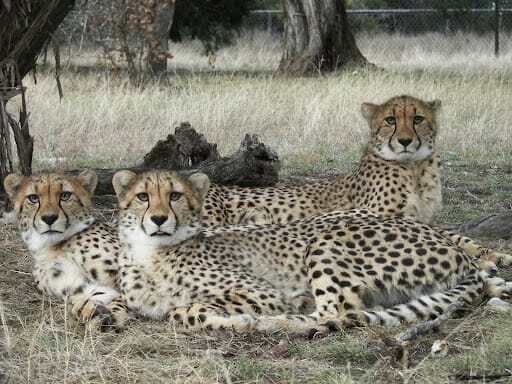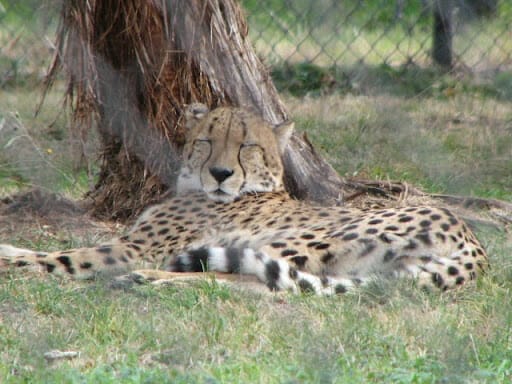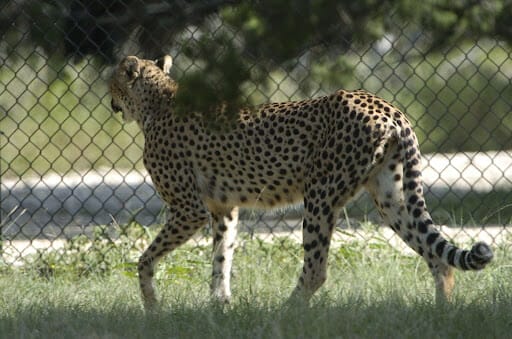Saturday, December 4 marks another annual International Cheetah Day. For decades, our animal care staff has dedicated countless hours to understanding the smallest details about our cheetahs. Everything from individual temperaments to overall best practices, our standards of care are constantly evolving to fit the needs of these big cats.

Rethinking the Cheetah
When you think of cheetahs, what comes to mind? Images of the big cat racing across a savannah? A blurry shot of them chasing down an antelope at breakneck speeds? Well, despite cheetahs’ status as the fastest land animals on earth, they don’t spend their entire day running around. In fact, cheetahs are most likely to be found lounging beneath the shade of a tree. These animals are about more than their speed, something the animal care staff here has been learning for years.
Though a napping cat might not seem like the most interesting subject, cheetahs are full of tiny behaviors that can tell us vital information. This info is not only important for the individual cat, but the species as a whole.

As Jessica Rector, one of our cheetah care specialists, puts it:
“Even if the cheetahs don’t seem very active, I’m still keeping an eye on them. The more knowledge I gain on what normal behavior looks like, the better chance I have of picking out when something is abnormal.”
This knowledge is vital, because for cheetahs, undetected problems with individuals could spell trouble for the whole species. The International Union for Conservation of Nature (IUCN) considers these big cats vulnerable. Thanks to threats of habitat loss, illegal trade and more constantly looming, every cheetah plays a role in the future of its population.
Saving a Species
Fossil Rim is one of the leading breeding centers for cheetahs in North America, but it’s not easy work. Female cheetahs are notoriously picky about their mates. The need for genetic diversity makes things even more complicated. A team of specialists select genetically compatible cats before the females get to make their pick. By monitoring our cheetahs over time, our team is able to tell by changes in body language whether or not a female likes a prospective male.

It’s not only breeding where behavior monitoring comes into play. Shifts in behavior and temperament are often important health and wellness cues.
“If a cat who is normally very active and food motivated isn’t getting up in the mornings- that’s going to clue me in fairly fast that they may need some extra attention or help,” said Jessica.
However, these clues aren’t always glaringly obvious. Sometimes they’re as subtle as how close a mother is lying to her cubs on a given day. Maybe it’s the way a female is walking more confidently around the yard one morning. This information helps inform decisions made about cheetahs. We even share our knowledge with other facilities who have their own populations and have made their own observations.
Conservation’s goal is to see a world in which the natural balance of nature is restored and maintained. For this reason, Fossil Rim works to encourage as many instinctual behaviors in our cheetahs as possible. We want to preserve all of what makes them incredible, wild creatures. This International Cheetah Day, we’re pledging to continue our mission to create a world in which cheetahs are able to once again thrive in the wild. We’re grateful for the hard work done both at our facility and at others just like ours around the world.
-Emily Lentz, Digital Media Coordinator

